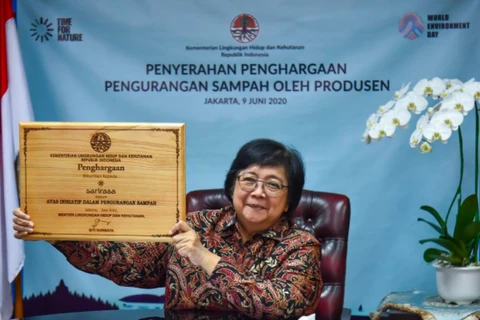Vientiane (VNA) - Fine dust concentration in many provinces and cities of Laos is reported on April 9 to be harmful to human health.
The Lao Centre for Natural Resources and Environmental Research said that northern provinces are reporting high concentration, including Phongsaly (257 micrograms per cubic metre), Xiengkhouang (209), and Oudomxay (over 300).
The reasons are due to the burning of straw and fields to prepare for a new crop, forest fires and traffic emissions.
Meanwhile, the Department of Hydrometeorology under the Ministry of Natural Resources and Environment has also warned local authorities and people of some northern, central and southern provinces about the possibility of thunderstorms, lightning, strong winds and hail in the coming days./.
The Lao Centre for Natural Resources and Environmental Research said that northern provinces are reporting high concentration, including Phongsaly (257 micrograms per cubic metre), Xiengkhouang (209), and Oudomxay (over 300).
The reasons are due to the burning of straw and fields to prepare for a new crop, forest fires and traffic emissions.
Meanwhile, the Department of Hydrometeorology under the Ministry of Natural Resources and Environment has also warned local authorities and people of some northern, central and southern provinces about the possibility of thunderstorms, lightning, strong winds and hail in the coming days./.
VNA
























